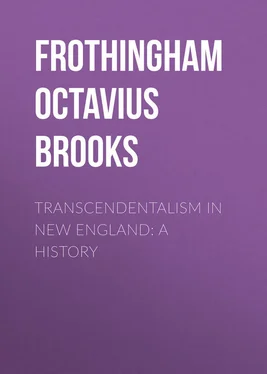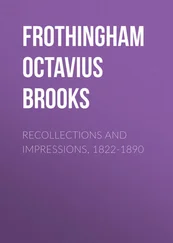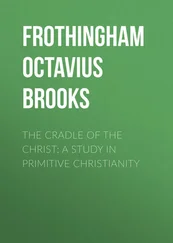This explains the interest which young and enthusiastic minds in the English Church took in Coleridge, the verses just quoted from Aubrey de Vere, one of the new school of believers, the admiring discipleship of Frederick Denison Maurice, the hearty allegiance of the leaders of the spiritual reformation in England. Coleridge was the real founder of the Broad Church, which attempted to justify creed and sacrament, by substituting the ideas of the spiritual philosophy for the formal authority of traditions which the reason of the age was discarding.
The men who sympathized with the same movement in America felt the same gratitude to their leader. Already in 1829 "The Aids to Reflection" were republished by Dr. James Marsh. Caleb Sprague Henry, professor of philosophy and history in the University of New York in 1839, and before that a resident of Cambridge, an enthusiastic thinker and eloquent talker, loved to dilate on the genius of the English philosopher, and was better than a book in conveying information about him, better than many books in awakening interest in his thought. The name of Coleridge was spoken with profound reverence, his books were studied industriously, and the terminology of transcendentalism was as familiar as commonplace in the circles of divines and men of letters. At present Hegel is the prophet of these believers, Schelling is obsolete, and Coleridge, the English Schelling, has had his day. The change is marked by an all but entire absence of the passionate enthusiasm, the imaginative glow and fervor, that characterized the transcendental phase of the movement. Coleridge was a vital thinker; his mind was a flame; his thoughts burned within him, and issued from him in language that trembled and throbbed with the force of the ideas committed to it. He was a divine, a preacher of most wonderful eloquence. At the age of three or four and forty Serjeant Talfourd heard him talk.
"At first his tones were conversational: he seemed to dally with the shallows of the subject and with fantastic images which bordered it; but gradually the thought grew deeper, and the voice deepened with the thought; the stream gathering strength seemed to bear along with it all things which opposed its progress, and blended them with its current; and stretching away among regions tinted with ethereal colors, was lost at airy distance in the horizon of fancy." At five-and-twenty William Hazlitt heard him preach.
"It was in January, 1798, that I rose one morning before daylight, to walk ten miles in the mud, to hear this celebrated person preach. Never, the longest day I have to live, shall I have such another walk as this cold, raw, comfortless one, in the winter of the year 1798. Il y a des impressions que ni le temps ni les circonstances peuvent effacer. Dusse je vivre des siècles entiers, le doux temps de ma jeunesse ne peut renaître pour moi, ni s'effacer jamais dans ma memoire. When I got there the organ was playing the hundredth psalm, and when it was done Mr. Coleridge rose and gave out his text. 'He departed again into a mountain himself alone.' As he gave out this text his voice 'rose like a stream of rich distilled perfumes;' and when he came to the last two words, which he pronounced loud, deep, and distinct, it seemed to me, who was then young, as if the sounds had echoed from the bottom of the human heart, and as if that prayer might have floated in solemn silence through the universe. The idea of St. John came into my mind, of one crying in the wilderness, who had his loins girt about, and whose food was locusts and wild honey. The preacher then launched into his subject, like an eagle dallying with the wind. The sermon was upon peace and war, upon church and state, not their alliance, but their separation; on the spirit of the world and the spirit of Christianity, not as the same, but as opposed to one another. He talked of those who had inscribed the cross of Christ on banners dripping with human gore. He made a poetical and pastoral excursion, and to show the effects of war, drew a striking contrast between the simple shepherd boy, driving his team afield, or sitting under the hawthorn, piping to his flock as though he should never be old; and the same poor country lad, crimped, kidnapped, brought into town, made drunk at an ale-house, turned into a wretched drummer-boy, with his hair sticking on end with powder and pomatum, a long cue at his back, and tricked out in the finery of the profession of blood.
Конец ознакомительного фрагмента.
Текст предоставлен ООО «ЛитРес».
Прочитайте эту книгу целиком, купив полную легальную версию на ЛитРес.
Безопасно оплатить книгу можно банковской картой Visa, MasterCard, Maestro, со счета мобильного телефона, с платежного терминала, в салоне МТС или Связной, через PayPal, WebMoney, Яндекс.Деньги, QIWI Кошелек, бонусными картами или другим удобным Вам способом.
See Kant's Critique of Pure Reason, London, 1838; Morell's History of Modern Philosophy; Chalybäus' Historical Development of Speculative Philosophy from Kant to Hegel; Lewes' Biographical History of Philosophy; Cousin's Leçons, Œuvres, Iere série, vol. 5, give a clear account of Kant's philosophy.












